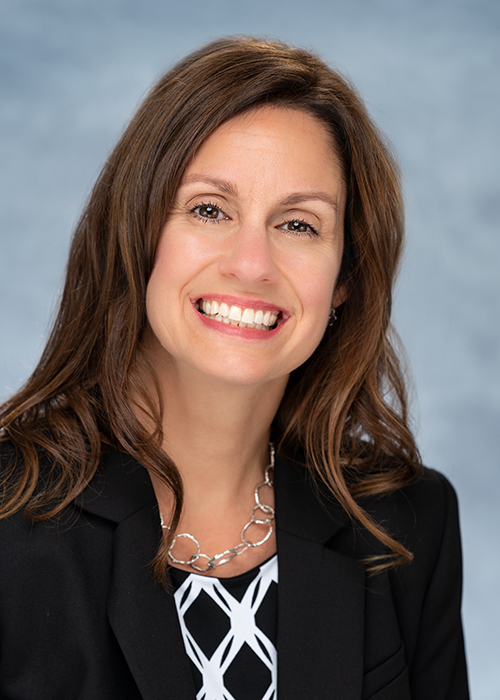How did you get into your field?
Growing up, numbers always came easily to me. My dad owned his own business, and he was the kind of guy where his customer would say, “I have three cases of this, five cases of that, and 22 of these,”. My dad would add it up in his head and say, “You owe me $120.75.” He was a human calculator, and I tried to emulate him.
My older brother is twelve years older than I am. When I was in ninth grade, I asked him what he thought I should do career-wise. He suggested I “go into tax because taxes will never go away.”
So, in high school, I decided to take accounting classes and became president of Future Business Leaders of America (FBLA) my senior year. I studied accounting in college and worked at a local company in their tax department. I preferred this atmosphere over public accounting.
Close to graduation, I got a call from Coopers & Lybrand (at the time) inviting me to interview for a state and local sales tax position. I got the job and loved it—the work and the people.
I spent almost ten years at PwC (C&L merged with them), and at one point, a former coworker said, “Hey, they’re looking for someone at Corptax. Apply—you’ve got the spunk. you’ve got the attitude.” Next thing I knew, I was interviewing with Corptax leadership in New York, and I got a call two hours later offering me the job. That was 15 years ago!
What do you enjoy most about your present job?
The ability to work with a lot of people and departments across the organization. It’s the teaming aspect—I get to work with Marketing, Education, Sales, Software Development, and, of course, Professional Services. If you work for an accounting firm, accounting is all you do; you don’t get to see different aspects of how the organization works. Here, I’m never doing the same thing each day. I love that I can get a call from senior leadership saying, “Hey, let’s get X, Y, and Z done, and let’s get it done by Monday.” That excites and energizes me—we have the flexibility to work cross-functionally on so many different projects.
What is one thing that surprised you about working at Corptax?
The tenure of the staff! And now, after being here so long, I know the reasons for that. One, we are such a good company, and we team across the board, and two, it’s a family atmosphere—Corptax cares about you, both personally and professionally.
What’s one thing you’re learning now, and why is it important?
I’m focusing on the Global Minimum Tax right now. It’s a good transition for me, because I’ve been a subject matter expert on country by country reporting since its inception seven or eight years ago. I’m teaming with other people in Professional Services to fully understand how the GMT functions and flows. It’s so essential because this is where the world is going from a tax perspective. Companies will be taxed on a global level now, and we need to help them get ahead of that.
What is the best advice you were ever given?
My first boss at Coopers & Lybrand gave me the best advice, “Make sure you develop and foster your relationships because that builds trust. When you build trust, your customers will follow you wherever you go.”
And that holds true with Corptax because we build trust with our customers. I’ve seen it time and time again. When my clients leave an organization and go to a company that doesn’t have Corptax, they bring Corptax in. I’ve worked with a customer now for the past 12 years at three different companies; each time she brought Corptax in. And each time, I got to work with her.
What are some things you enjoy most about Corptax clients?
They’re all unique, and they bring many different contributions to the table during an implementation. I always learn something new with each implementation. Maybe it’s their process or something they do differently than other clients. I file that knowledge in the little Rolodex in my head and pull it out when needed.
Flashback to a favorite memory when you were 10 years old.
At 10 years old, I worked for my dad helping him sell products at flea markets. By the time I was 13, I had my own flea market stand. I would go to New York City on weekends with my dad, buy clothes, handbags, hair accessories, etc. and sell them. I did that through college to earn extra money. I had my own massive flea market stand—a 60×60 table! This experience helped shaped my work ethic.
What lessons has your work life has taught you?
First, you must be organized to succeed. Next, check your work, check it again, and check it yet again before sending it off. And finally, there’s nothing better than teamwork.
Are there any changes you’ve seen in your field in the last five years?
People want things faster and at their fingertips. They want to get data out and analyze it within seconds. That whole approach of, “Hey, I’m going to wait for this or that to process,” is gone. Everybody wants everything instantaneously—that’s the biggest change.
Who do you admire and why?
I especially admire my parents and my older sister. They all influenced the person I’ve become.
At the age of fifty, my mom moved to a new city and reinvented herself by starting a new profession. My father taught me everything I know about business, how to successfully interact with people, and how to grow work relationships. And finally, my older sister helped raise me and my younger sister while my mom worked. She strongly encouraged me to go to college and has always been my biggest advocate. I would not be where I am without their input in my life. For that, I am truly grateful.
Discover how Megan Diak, Manager of Technical Product Support, works her magic to ensure industry-best customer support.
about this topicAbout Mary Ellen Robb
In addition to her role as a lead software engagement senior manager, Mary Ellen Robb cohosts the annual Corptax Tax Transformer Awards.
